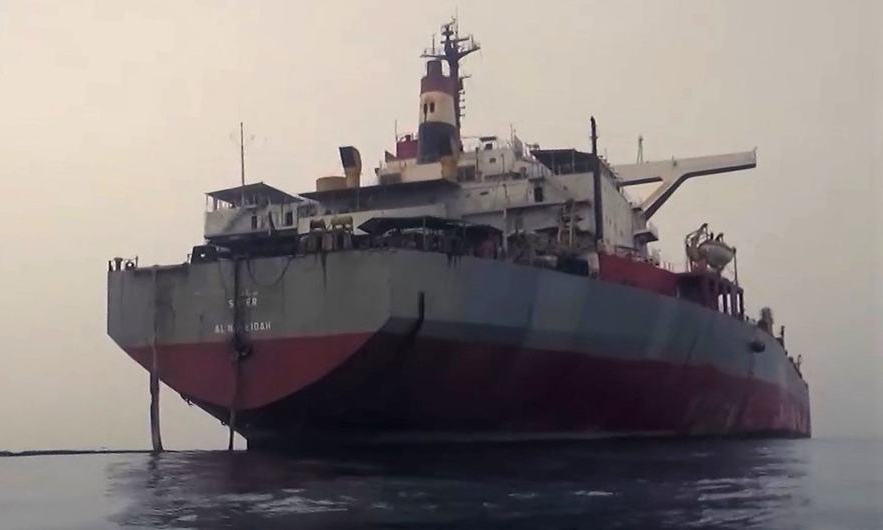Ships Fleeing The Red Sea Now Face Perilous African Weather
By Alex Longley and Paul Burkhardt (Bloomberg) –Ships sailing around the southern tip of Africa are wrestling with a bout of bad weather that has already run one vessel aground and...


The FSO Safer, moored off Yemen's west coast. Photo: UNRCO Yemen
The United Nation’s says it has raised enough funds to begin the operation to transfer oil from the decaying tanker FSO Safer in the Red Sea off the coast of Yemen.
The United Nations has been leading efforts to transfer oil from the vessel and find a long-term solution in order to prevent an environmental and humanitarian catastrophe.
David Gressly, UN Resident and Humanitarian Coordinator for Yemen, briefed journalists on the situation at UN Headquarters in New York following an event co-hosted the Netherlands, the United States, and Germany, taking place on the sidelines of the UN General Assembly.
The rusting FSO Safer has been anchored just a few miles off the Yemen coast for more than 30 years, but offloading and maintenance stopped in 2015 following the start of the war in Yemen, putting the vessel at serious risk of breaking up and spilling the 1.14 million barrels of crude oil that remain inside.
The vessel has been described as a “ticking time bomb” that threatens an environmental and humanitarian catastrophe. A major spill would devastate fishing communities on Yemen’s Red Sea coast and impact several other countries, not to mention impacts to busy Red Sea Shipping lanes. Yemeni ports essential to bringing in food for around 19 million in need of assistance could also be closed. The cost of cleanup alone would be $20 billion, according to the UN.
During this week’s event, Gressly said donors had pledged the full $75 million needed to begin the first phase of the emergency operation that involves transfer oil from the Safer to another more secure vessel. The announcement follows an additional $7.5 million pledge from the Netherlands, bringing the Dutch Government’s contribution to $15 million. The United States has pledged $10 million and Germany $12 million. A UN-led crowdfunding campaign raised $200,000.
“Everybody understands the cost, everybody understands the impact, and everybody wants to act. I take great satisfaction in seeing that unified effort today, to find a solution”, said Gressly.
Work on the emergency operation is now set to begin “in earnest in a few weeks’ time,” as soon as donors can convert all of the pledges to cash, according to Gressly.
The salvage will take place in two phases. The first involves the emergency transfer of oil from the Safer to a temporary storage vessel. This phase is expected to take four months and reporting indicates Dutch salvage firm SMIT Salvage has been hired for the job.
The second phase is focussed on a long-term solution that involves the installation of a double-hull vessel tethered to a catenary anchor leg mooring (CALM) buoy system. The UN is in the process of raising the additional $38 million needed for this phase.
The operation to transfer oil from the vessel comes after a UN agreement was reached with Yemen’s Houthis, one of the warring parties in Yemen, allowing the operation to move forward.
Join the gCaptain Club for curated content, insider opinions, and vibrant community discussions.


Join the 107,180 members that receive our newsletter.
Have a news tip? Let us know.
Access exclusive insights, engage in vibrant discussions, and gain perspectives from our CEO.
Sign Up




Maritime and offshore news trusted by our 107,180 members delivered daily straight to your inbox.



Essential news coupled with the finest maritime content sourced from across the globe.
Sign Up